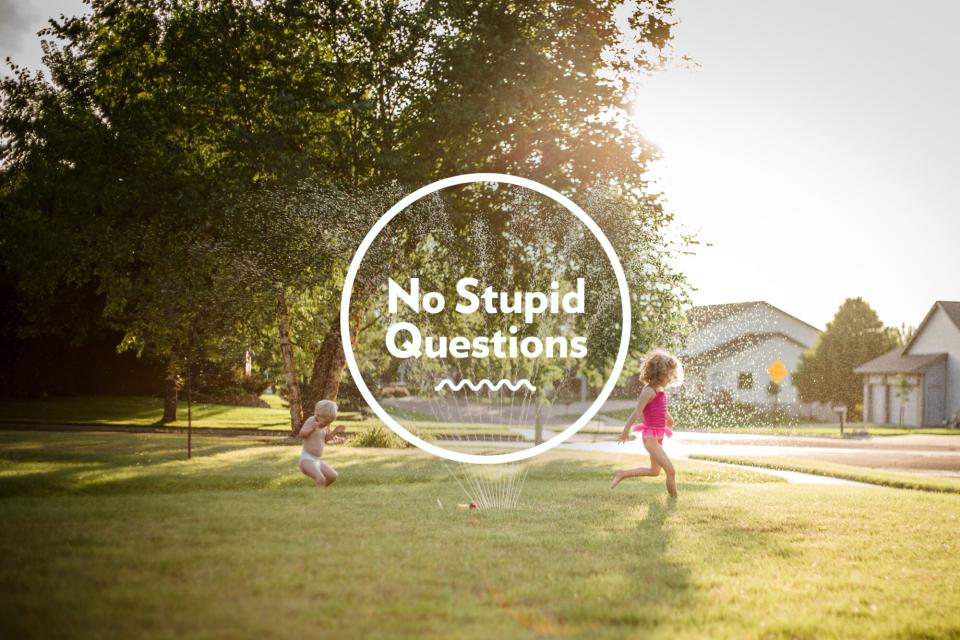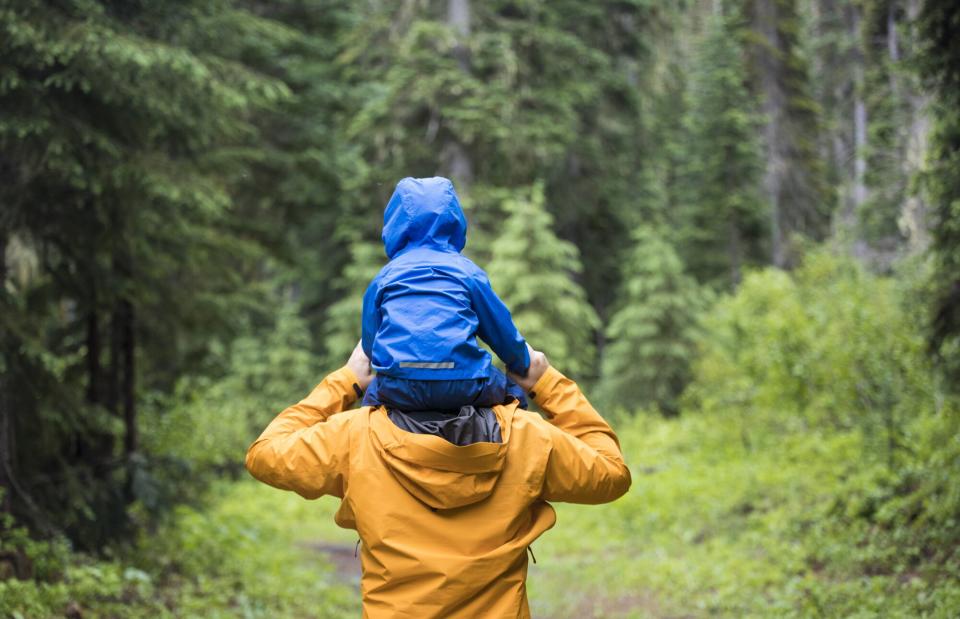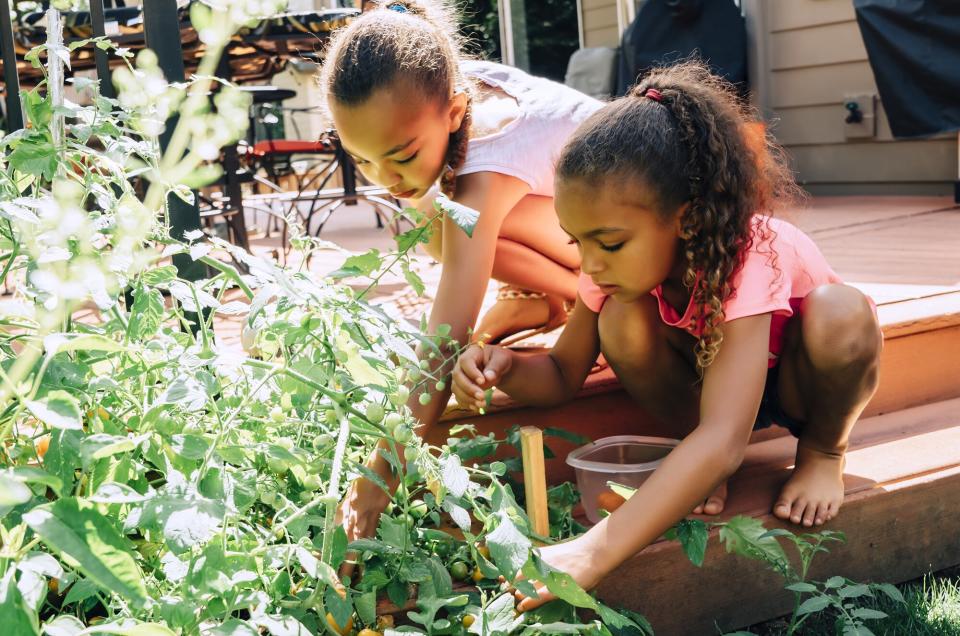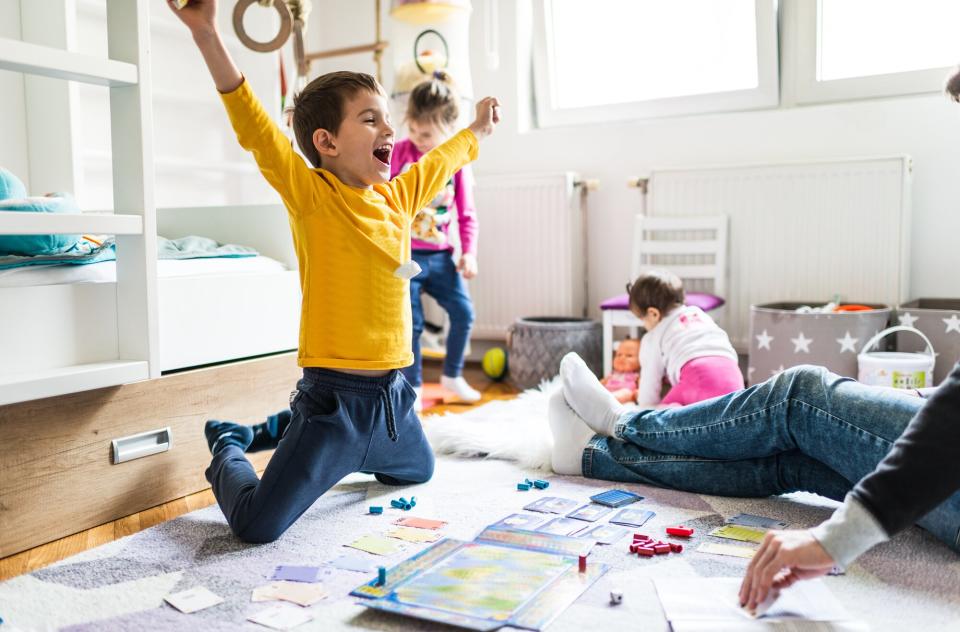With Camps and Trips Canceled, How Can I Actually Entertain My Kids at Home This Summer?

Getty Images
No Stupid Questions is a PEOPLE series that provides expert answers to your toughest (and funniest, and most embarrassing) parenting questions. Check out more here and send yours to NoStupidQs@peoplemag.com.
Summer vacations will be looking a bit different this year. The coronavirus pandemic has yet to plateau in the U.S., with little evidence about when that may happen. As a result, families have been getting used to life at home.
With the school year coming to an end, parents are having to get creative when it comes to entertaining their kids at home this summer. That said, it doesn't have to be a cruel summer for parents.
"As you navigate this unusual summer, take time to check in with your kids and see what they’re curious about," Krystal Dillard of the Natural Creativity Center tells PEOPLE. "Maybe it’s daily or just weekly, but that little check-in can go a long way in finding activities that your young people will be interested in and excited about."
We spoke to both Dillard and Chris Steinmeier, co-directors of the Natural Creativity Center, as well as Dr. Sandra J. Stone, Professor Emeritus at Northern Arizona University and play expert for Schleich, to discuss ways parents can keep their children stimulated for the next three months — while still staying sane themselves.
How can I make the summer camp experience work at home?
Summer camp is often the prime destination for kids when they're out of school, and many kids spend the year looking forward to it. But who says you can't have some of the camp experience at home? Dr. Stone says parents should focus on providing opportunities for children to use their own imaginations.
"Provide space and materials for children to engage in dramatic play," Stone tells PEOPLE. "Your children may decide to create their own story with their toy animals, or dramatize a favorite book, or put on a play they have written and then perform for you and other family members." Stone recommends letting children use the space and items at hand, whether it be creating indoor forts or using boxes as creative tools.
"Summer play competitions can also be fun such as a ping-pong tournament, chess competition, basketball free throws or even treasure hunts," suggests Stone. "Provide materials for arts and crafts, children can also play with recipes — maybe they can invent a new snack or design cookies with unique frosting."

Getty Images
"Play dough is easy to make with children’s help and you can add food coloring for interesting colors," Stone continues. "The play dough becomes mountains for the toy horses to climb, food for a hungry T-Rex and tacos for a pretend restaurant."
This may leave some parents worried about destruction around the house, but Stone suggests not stressing about the mess potential. "Focus instead on the creativity and imagination the children are enjoying, knowing that these responses are also preparing children for future inventions and creative aspirations as their brains create connections for problem-solving, divergent thinking, and creativity," she says.
Similarly, Steinmeier believes summer is a time for kids to explore their interests, and to keep activities focused on pushing their kids' creativity. "Maybe you develop a list of activities together, such as tie-dying shirts or cooking, or you put on a play, or make each week a different camp theme," he tells PEOPLE. "All these activities help young people make new connections and develop; the more freedom you give them to pursue their own interests, the more excitement and enthusiasm you all will have. Summer really gives us an opportunity to re-imagine what learning can be."
How can I make play dates work?
For many children, summertime is the best opportunity to hang out with friends outside of school. And while kids won't be able to socialize with their BFFs as they normally would, that doesn't mean they have to be completely cut off from their favorite people.
Dr. Stone suggests considering virtual social play and communication. "Many families are connecting with cousins and friends over FaceTime, WebEx, Zoom, Google Meet or Marco Polo. Children can share moments of play with their favorite toys, inventing stories to share through videos," says Stone. "Children can invite friends and cousins to 'challenges.' Children can share a dance, a song, a game, or story, and send on a challenge to others to do the same and share what they created."
Videoconferencing may not be enough for many children, with some still craving physical connections with their friends. Luckily, Steinmeier says parents don't have to completely rule that out. "It’s time to get creative and think about how your young people can connect with others from a safe distance while doing something they love," he says. "Maybe that means creating friendship bracelets and putting them in the mail, playing charades across the street, doing a baking exchange, or going for a bike ride together."
The consensus is that it's important to talk to kids about this altered reality, so they understand the new restrictions. They may get creative and come up with ideas that work for them.
Are there easy household projects I can make fun for the family?
This time at home has provided many with an opportunity to finally get things done around the house — and kids can be a part of that, too. The key is to approach tasks creatively, giving your children input.
"Young people want so badly to help out, and so often have their efforts held to adult standards that they lose the motivation," says Steinmeier. "Instead of telling them what to do, start by asking your kids how they want to be helpful, and then create ways for them to help."

Getty Images
No child wants to spend their summer dedicated to chores, so it's important to relate household tasks to things kids actually enjoy. "If you can open it up to their 'crazy' ideas, such as how to build a robot that does the dishes, you can really see them shine," adds Steinmeier. "The more space you leave for their creative input, and manage your responses to honor their intention and process rather than the results, the more fun it will actually become for everyone."
Stone suggests finding activities that can be fun for the kids, but also spruce up home aesthetics. "Planting a garden or a garden in multiple containers ... provide children with a choice of what to plant and where it will be planted," she says. "Choice is the motivation for ownership and enjoying the experience. Other projects could include woodworking projects such as making birdhouses or feeders, or sewing projects such as weaving placemats, making a quilt."
How can I go about a day trip instead of a vacation?
Family vacations are often the focal point of a summer break, but the numerous travel restrictions implemented amid the pandemic don't appear to be lifting in the immediate future. Although families are having to cancel all major trips in the near future, that doesn't mean you can't enjoy the nearby scenery. In fact, this could be a great opportunity for families to get a better understanding of the beauty that surrounds them.
"A day trip can simply be a change of scenery," says Stone. "Find places and spaces in your community to have a picnic lunch, hike through a wooded area or desert, and look for flora and fauna. Different places can offer different experiences and points of view just like a vacation."
The key point is getting outside and organizing the day around your family's interests. "Whether it’s creating a scavenger hunt that allows your young person to lean into their passion for trees or organizing virtual tours of museums with friends or finding the perfect park bench to perch from for people watching and inspiration gathering, you can tailor the trip to fit the goals and interests of everyone - or rotate who gets to design the day," says Steinmeier. "A bonus in all of this is that by focusing on where you can get to and from in a single day, you and your family will develop a deep understanding and connection to the hidden gems near your house."
Is it possible to have a camping trip without leaving the house?
Camping is a classic summer activity for families, but it doesn't necessarily require heading to a campground. Sleeping in sleeping bags, making s'mores, building a fire, singing songs and exploring nature are all things that can be done in or around the house.

Getty Images
"Families can put a tent inside or outside the house and pretend they are camping," recommends Stone. "Invite the children to use their imaginations to make a pretend campfire, arrange the sleeping bags, prepare snacks and sandwiches, and decide whatever supplies they might need. If the adventure is outside and a real fire is permitted, plan on roasting marshmallows. Invite the children to decide on the adventures they can create for the pretend camping trip. Are they hunting for squirrels, bears, or rabbits? Toys can be convenient animals hiding in the pretend woods. Campfire stories are also fun to create. Start a story and each person in the family adds something to continue the story."
Dillard suggests asking the kids about their favorite parts of camping and to brainstorm together about how you can adapt those things in the backyard or even in the living room. "It’s natural to feel pressure to recreate the perfect summer curriculum and control every detail, but try to approach activities in partnership with your child and you might be surprised by their creativity," she says.
How can I keep walks fun for the family?
Getting outside is one of the most essential aspects of summer, and for many, outdoor time right now is limited to walks around the neighborhood. The key is keeping this time from getting stale, as it can be a daily highlight for families — without requiring too much effort. Dr. Stone suggests treating each walk as its own family adventure, saying, "Spark engaging conversations with your kids, asking them to find 'something interesting' that they see along the walk."
What if your kids are fed up with all the walking? Dillard recommends thinking about other frameworks for getting outside that might be more interesting to them. "You could use the walk to play a game, discover new sights and sounds in your neighborhood, or challenge your kids to find a single object in nature that they want to take home to display on a shelf," she says. "You could also ask your young person if they’d like to hike somewhere new, go for a bike ride, or play a game in the yard."
What about family game nights?
Game nights are one of the most tried and true family activities, so making them a recurring event gives the kids something to look forward to, while also doing something that involves every member of the household. Stone says to keep the format loose, whether you're using commercial games or making your own, deciding on whatever rules work best for your family.

Getty Images
"Working on puzzles together also provides an enjoyable experience," Stone says. "Family charades or picture drawing games are also great family fun. A variation of 'hide and seek' plays out by hiding an object and guiding children by using varying degrees of 'cold, warm, or hot' phrases to help them find the object."
According to Dillard, it's important to switch off which family member gets to choose the game to give everyone a sense of ownership. "And don’t force it: you may notice that some nights everyone is engaged and competitive, and others your kids seem distracted or uninterested," adds Dillard. "That’s okay. Follow your kids’ leads and trust their instincts: the fun will follow."

